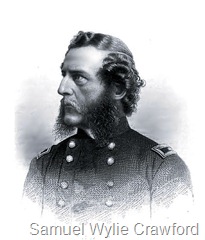June 23.—The London Times, of this date, said that whatever might be the result of the civil war in America, it was plain that it had reached a point at which it was a scandal to humanity. It had become a war of extermination. Utter destruction might be possible, or even imminent, but submission was as far off as ever. Persons who listened to the excited railers on either side might think that there was no alternative but to let a flood of blood pass over the land; but, at that calm distance, it might perhaps be wisely calculated that such voices did not represent the mind of the American people. Both parties ought by this time to be tired of the strife. There had been blood enough shed, fortunes enough made, losses enough suffered, and wrongs enough inflicted and endured. The opportunity ought to be either present or at hand when some potent American voice, prudently calling, “Peace,” might awaken an universal echo.
—Martial law was proclaimed in the cities of Norfolk and Portsmouth, Va., by order of Brig. General E. L. Viele, Military Governor.
— Brigadier- General Schofield, Military Commandant District of Missouri, this day issued a General Order from his headquarters, St Louis, warning the rebels and rebel sympathizers in Missouri that he would hold them responsible in their property and persons for any damages that might thereafter be committed by the lawless bands of armed men which they had brought into existence, subsisted, encouraged, and sustained up to that time.
—The Third battalion, Fifth Pennsylvania cavalry. Col. Campbell, stationed at Gloucester Point, made a reconnoissance under the command of Major Wilson, into the counties of Gloucester and Mathews, Va., for the purpose of capturing a body of rebel cavalry, who were overrunning those counties, arresting deserters, and impressing others into their service who were unwilling to volunteer.
On arriving at Mathews’s Court-House, Major Wilson found he was a day too late. The rebel cavalry had been there, and arrested twenty-four men as being deserters from their army.
Samuel Wylie Crawford (Wikipedia) was the surgeon on duty at Fort Sumter, South Carolina, during the Confederate bombardment in 1861, which represented the start of the Civil War. Despite his purely medical background, he was in command of several of the artillery pieces returning fire from the fort.
A month after Fort Sumter, Crawford decided on a fundamental career change and accepted a commission as a major in the 13th U.S. Infantry. He served as Assistant Inspector General of the Department of the Ohio starting in September 1861. He was promoted to brigadier general of volunteers on April 25, 1862, and led a brigade in the Department of the Shenandoah, participating in the Valley Campaign against Stonewall Jackson, but the brigade saw no actual combat.



